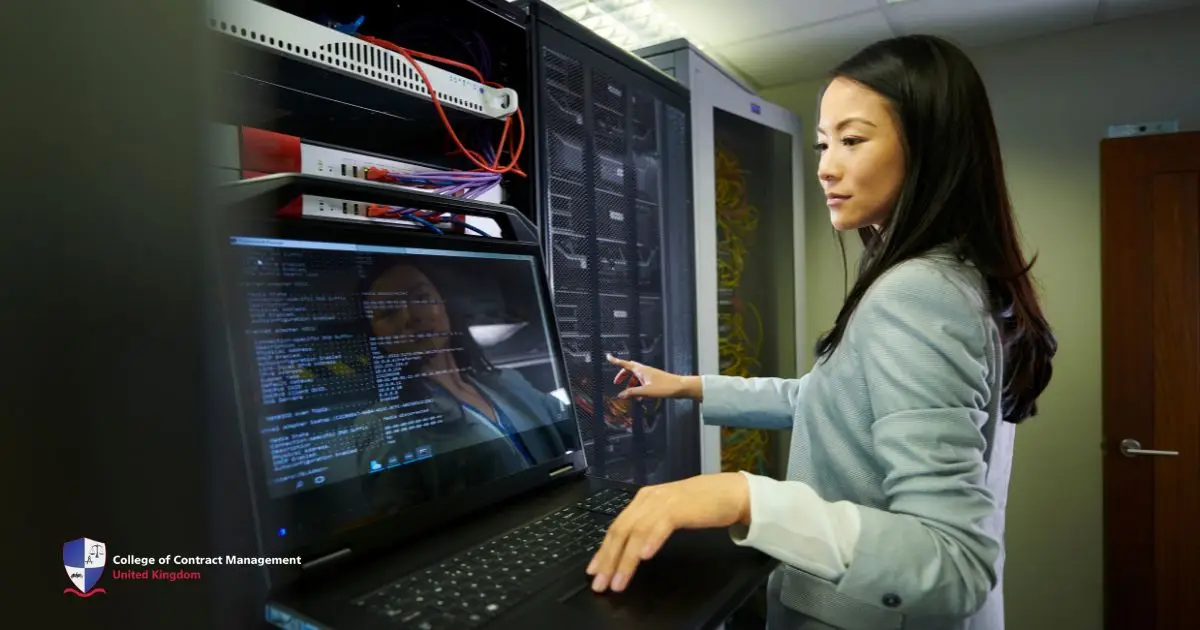Computer systems have become a vital part of modern life. They power everything, from communication to business operations. They include hardware, software, and networks that work together seamlessly. Because of their growing role, it's crucial to know how they function. This knowledge helps us explore our digital world more effectively.
This blog dives into the basics of computer systems. We’ll look at where and how they are applied. Besides that, we’ll explore how fields like TQUK, cyber security, networking, and web design link together. Then, we’ll discuss relevant courses. We'll also touch on why education is crucial in this changing and exciting area. Join us on this journey!
What are Computer Systems?
Computer systems are made up of both hardware and software. Hardware consists of physical parts, like processors, memory, and storage. As for software, it includes programs and operating systems that help everything function. Together, they work seamlessly to perform various tasks. If one is absent, the other cannot operate properly. It's a perfect partnership.
These systems are used in nearly every industry. They make each process simple, store data and enable communication. Moreover, they help people work together more efficiently. So, a firm grasp of the basics is crucial. In today’s tech-driven world, having this knowledge can make a big difference in how we do our tasks.
Importance of Computer Systems in modern life
Computer systems play a big role in our daily lives. Their ability to process data quickly and accurately makes them essential. They power our mobile phones, laptops, and even smart home devices. Without these systems, many tasks would be harder or even impossible. Truly, we rely on them more than we realise.
A computer system is crucial for businesses. It not only streamlines operations but also boosts efficiency. Other than that, it improves communication and enhances productivity. In addition, these systems support data-driven decision-making. Without these, our modern society would struggle to function effectively. Overall, they play a crucial role in keeping everything running smoothly.
TQUK and Computer Systems
TQUK, or Training Qualifications UK, offers a variety of certifications in fields like IT and digital skills. These courses are designed to help individuals gain useful knowledge about these systems. They focus on practical applications and give learners the chance to build the skills needed for today's tech-driven world. With this, they can enhance their career prospects further.
TQUK credentials cover areas like cyber security, networking, and web design. These not only help you understand how these systems work but also teach you how to use them properly. Besides that, they give a solid basis for various sectors. In short, they are a great place to start for those looking to build tech skills.
Cyber Security and Computer Systems
Cyber Security is crucial for all computer systems. It’s about keeping those systems safe from being accessed by others, attacks, and data breaches. Moreover, as digital threats continue to rise, keeping a computer system protected has become even more vital. Hence, everyone needs to be aware of these threats and take steps to secure their devices.
Good cybersecurity practices are vital for keeping data safe. For example, this includes using firewalls to block unwanted access and encryption to protect information. In addition, regular software updates are crucial due to how they fix vulnerabilities. Ultimately, experts in this field play a key role. They help a business maintain trust and prevent costly security incidents.
Key Elements of Cyber Security
Cyber Security focuses on keeping these systems protected. Here are its main parts:
- Networking Security: Protects the infrastructure from attacks.
- Data Encryption: Converts data into unreadable formats for unauthorised users.
- Firewalls: Monitors and controls incoming and outgoing traffic.
- Regular Updates: Ensures software vulnerabilities are fixed.
- Access Control: Limits system access to authorised personnel.
Networking in Computer Systems
Networking connects computer systems. It allows them to share resources and communicate easily. In essence, it serves as the backbone of the Internet and many other technologies. Without networks, systems would operate in isolation. This would then limit their potential and the amazing things they can achieve together. So, it's essential for collaboration.
Networking covers both wired and wireless systems. In this field, professionals design and manage networks to keep everything running smoothly. This makes it a crucial skill for anyone who works with these systems. Therefore, being aware of the basics of networks can greatly enhance your ability to troubleshoot problems and improve overall efficiency.
Types of Networking
Networking involves various configurations. Here are some common types:
- Local Area Network (LAN): Connects devices within a small area like an office.
- Wide Area Network (WAN): Covers larger areas, often connecting multiple LANs.
- Wireless Network: Use radio waves to connect devices without cables.
- Cloud Networking: Relies on cloud-based resources for data and communication.
- Peer-to-Peer Network: Allows devices to share resources equally.
Web Design and Computer Systems
Web design is all about creating websites that look great and work well. It brings together various computer systems, ensuring everything runs smoothly. Designers use various tools and programming languages to turn their ideas into reality. Therefore, their goal is to create a user-friendly experience that keeps visitors happy and engaged throughout their journey.
A well-designed website enhances user experiences. Moreover, it supports important business goals. In fact, it plays a vital role in digital marketing. By doing so, it helps organisations reach their target audience. It also allows a business to engage with its customers effectively. Because of all this, investing in a great website is essential for success online.
Principles of Web Design
Effective web design focuses on several principles. These include:
- User-Friendly Navigation: Ensures visitors can find information easily.
- Responsive Design: Adapts to different screen sizes and devices.
- Optimised Loading Speed: Lessens delays in accessing content.
- Visual Appeal: Uses colours, fonts, and layouts effectively.
- SEO Integration: Helps improve search engine rankings.
Role of Education in Computer Systems
Education is really important for mastering how a computer system works. It gives people the skills they need to use and manage technology. First, there’s basic IT knowledge. Then, there are advanced certifications. Besides that, there are plenty of opportunities to learn available. So, whether you’re just starting or looking to advance, there’s something for everyone.
Courses in cyber security, networking, and web design offer valuable knowledge. They equip learners with vital skills to excel. As a result, they become more than ready to meet industry demands. With these courses, learners can stand out better in a job search.
Benefits of Learning about Computer Systems
When you study how a computer system works, you can gain many practical benefits. For one, it sharpens your problem-solving skills. Next, it can improve your job prospects. Moreover, being updated helps you remain competitive in today’s tech-driven economy. Whether you’re just starting or already experienced, continuous learning is essential. With all that in mind, dive in and get into the exciting tech world!
Mastering concepts like networks and cyber security boosts your ability to tackle real-world challenges. Having web design skills also makes you a valuable asset in digital marketing and online content creation. So, education is truly the key to unlocking these opportunities. In turn, this opens doors for your future career and personal growth.
Expanding your skills with Computer Systems Education
With how quickly technology evolves, being updated is crucial. In doing so, you'll open up exciting career opportunities. To do that, enrolling in specialised courses is the go-to. That way, you'll bridge the gap between what you learn in theory and what you can do. You'll be more than ready for the job market.
Fields like cyber security and networking demand in-depth knowledge and plenty of hands-on experience. Not to mention, web design, which brings a creative element to technical skills. Due to this, there's more career flexibility for those who learn it. Studying these systems will equip you with the necessary tools to succeed in the tech industry.
Taking the First Step Towards Computer Systems Mastery
Enrolling in a course is the first step towards being a master at computer systems. The College of Contract Management offers an environment that supports its students. Here, you can learn at your own pace. Plus, their expert tutors are always there to help you. They ensure you understand both the basics and the complex concepts in a clear way.
Don’t wait to improve your skills and expand your career prospects. Instead, explore the courses at the College and start your journey today! Whether you’re into TQUK, networks, or web design, there’s a course designed just for you. So, take that first step and unlock your potential—you won’t regret it!
Conclusion
Computer systems are at the heart of technology today. They shape how we live and how we work. Hence, it's very important to know about their components. Moreover, having a firm grasp of where they're applied can help us stay ahead. In today’s digital world, it’s a must to keep up with these changes. So, let’s stay informed and engaged!
Exploring fields like cyber security, networking, and web design is exciting and offers many possibilities. With quality education from colleges like the College of Contract Management, you can truly build a fulfilling career. Take the time to invest in your future now. Embrace the opportunities that come as you learn about computer systems and achieve your goals!





